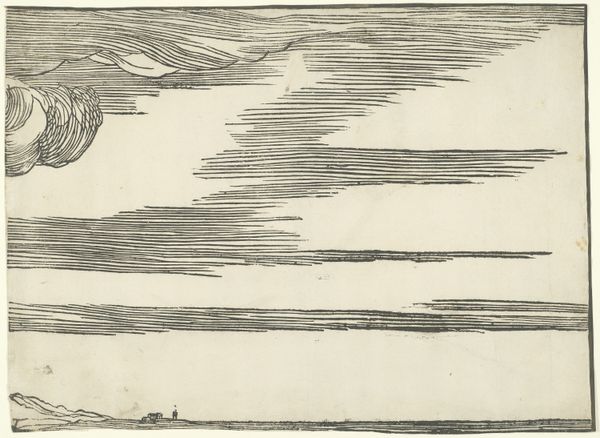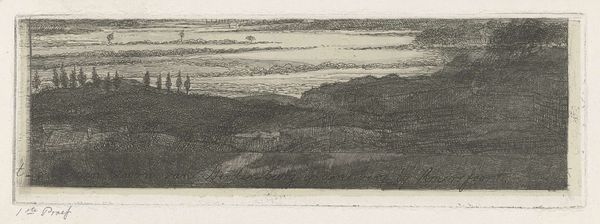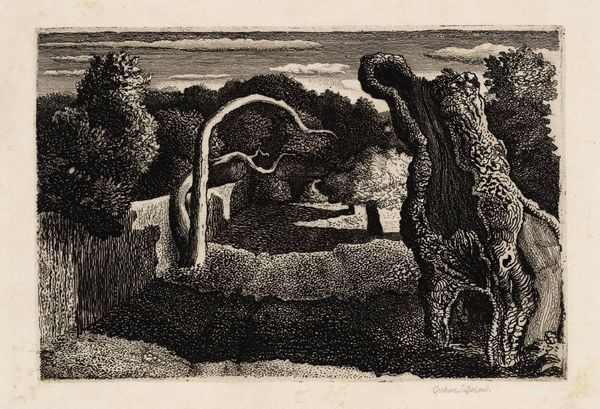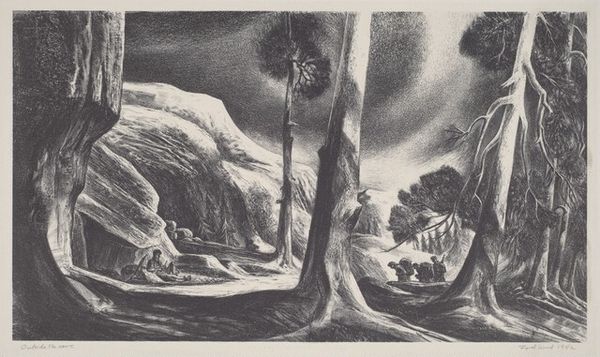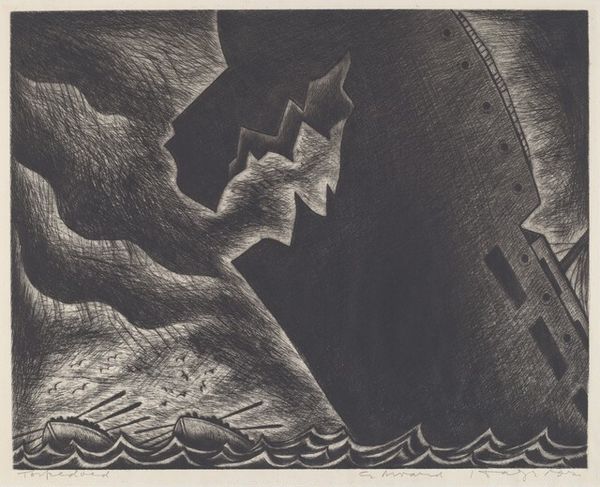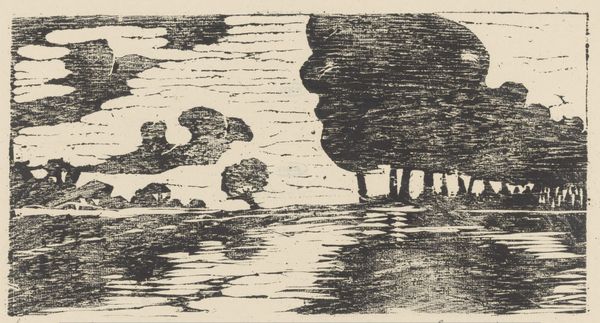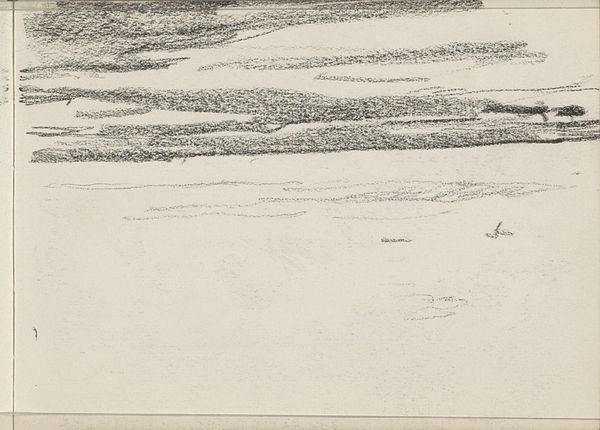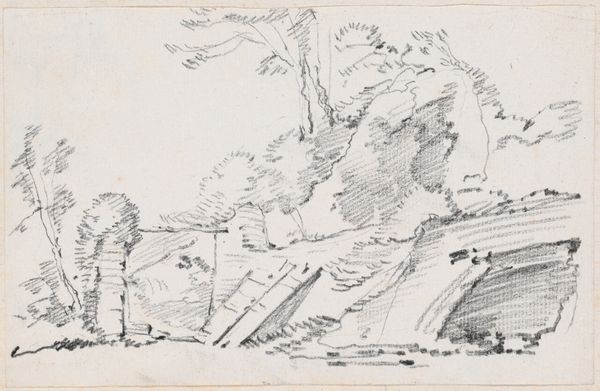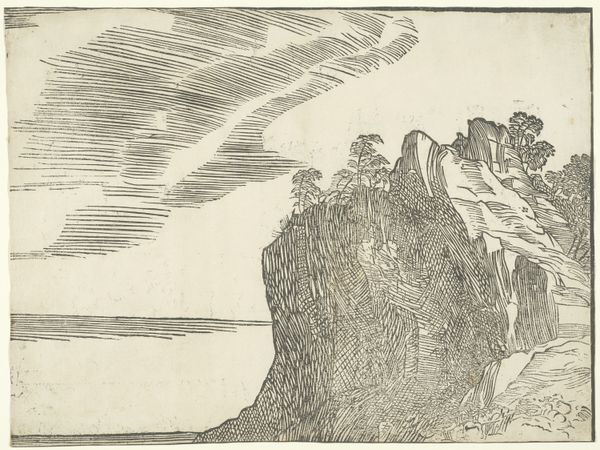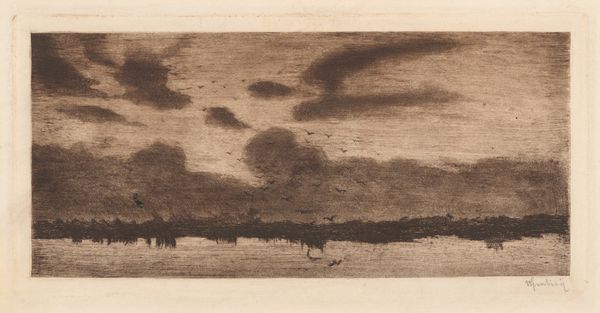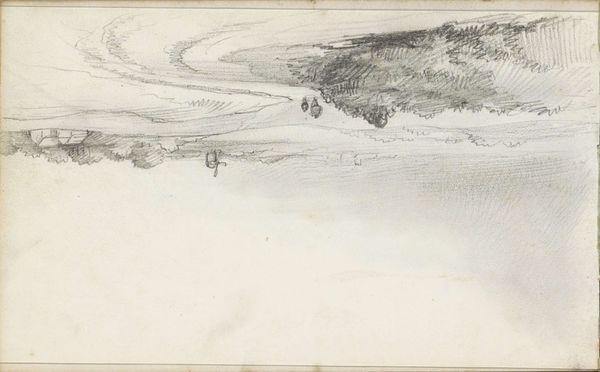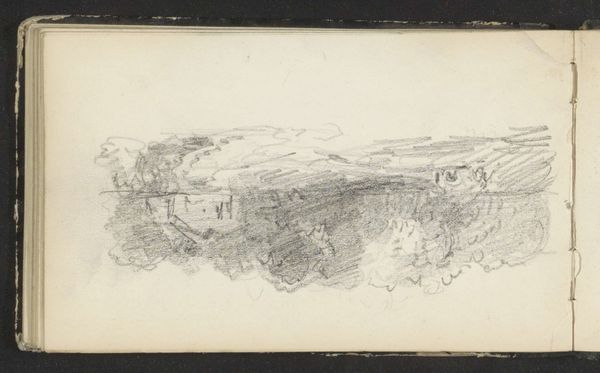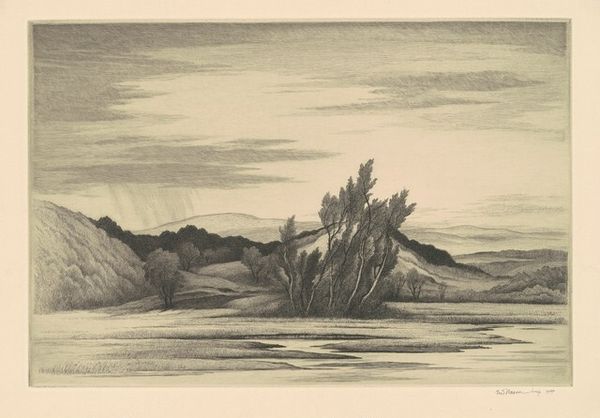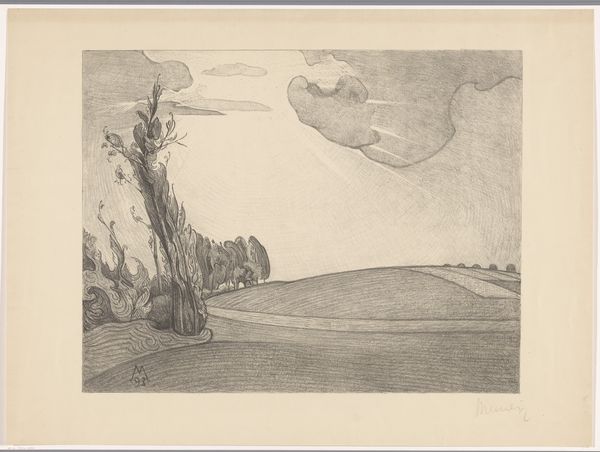
drawing
#
pencil drawn
#
drawing
#
neo-impressionism
#
landscape
#
etching
#
geometric
#
line
Dimensions: overall: 29 x 39 cm (11 7/16 x 15 3/8 in.)
Copyright: National Gallery of Art: CC0 1.0
Editor: This is Albert Dubois-Pillet's "A River Landscape" from around 1888, a drawing rendered in delicate points, almost like an etching. It's… surprisingly calming for something made of so many tiny dots. How do you interpret this work? What’s your take? Curator: Well, first off, those "tiny dots" – that's pointillism! Remember Seurat? Dubois-Pillet was part of that Neo-Impressionist movement. Think of each dot as a tiny breath, a quiet meditation on light and form. I almost want to step *into* the artwork and just lose myself for an hour. It's really about suggesting, not stating. I wonder, though, is it really a river landscape… or a mirror reflecting something more? Editor: A mirror? I see the landscape – the water, the trees, the buildings on the horizon. What else am I missing? Curator: Think about the oval shape… the hazy, dreamlike quality. Is it a memory? A vision? Notice how the intensity of the dots shifts - it draws the eye almost like musical notations on a staff. Are there stories being written in these textures? Dubois-Pillet was quite the rebel – expelled from the army for his art! Editor: Wow, I didn't know that! So, the rigid order of the military versus the freedom of art? It’s like he’s reconstructing the world in his own terms. I can definitely feel that rebellious spirit now, fighting for the control and meaning of the landscape, dot by dot. Curator: Precisely. And perhaps, in those dots, a challenge to the established way of seeing. Art that demands more attention, more thought – that's a landscape I want to wander. What's your overall impression now? Has it shifted? Editor: Absolutely. Initially, I just saw a peaceful scene. Now, I see a statement, a whisper of revolution camouflaged in a tranquil landscape. I feel so small comparing the dots in his style to, for instance, Chuck Close and the enormous grids in his. I didn't consider those quiet challenges before. Thank you for opening my eyes to see those points in his "A River Landscape!"
Comments
No comments
Be the first to comment and join the conversation on the ultimate creative platform.
